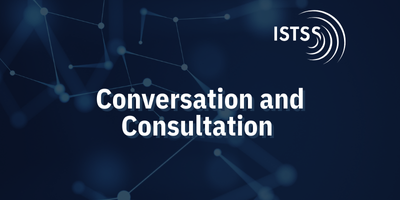Bringing Together Clinicians and Researchers From Around the World to Advocate for the Field of Traumatic Stress.
Healing Trauma Together
The International Society for Traumatic Stress Studies is dedicated to sharing information about the effects of trauma and the discovery and dissemination of knowledge about policy, program and service initiatives that seek to reduce traumatic stressors and their immediate and long-term consequences. ISTSS is an international interdisciplinary professional organization that promotes advancement and exchange of knowledge about traumatic stress.
Late-Breaking Poster Abstracts for the ISTSS 40th Annual Meeting
Deadline: Friday, July 26, 2024
All too often, research isn't completed when ISTSS abstract submissions close. ISTSS is excited to offer this opportunity to submit a late-breaking poster submission for the 40th Annual Meeting.
Only poster abstract submissions will be considered.
The ISTSS 40th Annual Meeting will focus on innovative strategies to apply basic science knowledge to the assessment and treatment of traumatic stress, as well as on the translation of scientific findings into actionable interventions for the global community. In pursuit of this goal, we seek submissions specific to the field of traumatic stress on topics related—but not limited—to:
- Application of biomedical science findings to inform assessments and interventions for traumatic stress symptoms/disorders.
- Research investigating the psychological, biological, social and behavioral mechanisms that underlie post-trauma mental health.
- Research taking a life course perspective to address to address the spectrum of translational science research.
- Evidence-based practices and innovative research in basic science, intervention development and implementation, and policy.
- Innovative transdiagnostic treatment approaches addressing the myriad consequences of trauma.
- Cutting-edge research methodologies and statistical frameworks for translational science research.
- Ethical implications and considerations associated with the application of translational science in traumatic stress studies.
- Ways to effectively communicate and disseminate research to different stakeholders.
- Ways to cultivate translational science and interdisciplinary exchange.
- Challenges and debates in the area of translational science.
- Translational science as applicable to the global community.
Registration is Now Open!
Join us in Boston on September 25-28, 2024 for the ISTSS 40th Annual Meeting. The ISTSS Annual Meeting provides a forum for the dissemination of theoretical work, scientific research, and evidence-based clinical approaches in traumatic stress studies.
Conversations and Consultations
Our Conversations and Consultation series is a members-only series that provides members with the opportunity to exchange valuable insight and advice with subject-matter experts, mentors, and/or colleagues in the trauma field. Each session is facilitated by one or more experts and presented to ISTSS members as a free membership benefit. Check out past sessions on industry careers, part-time private practice, and our most recent session on international collaboration.
Grow Your Professional Network by Volunteering with ISTSS
Volunteers play an integral role in ISTSS' day-to-day activities and form a broad professional network. Interested in adding an ISTSS volunteer position to your CV?
Clinician’s Corner: Behavioral health in the fire service – Anka A. Vujanovic, PhD
Communities around the globe depend on firefighters. We rely on them for safety, crisis and medical intervention, and our general well-being. Firefighters are regularly exposed to critical and emergency situations (e.g., fires, natural disasters, crime scenes, medical emergencies), and thus represent a unique and resilient population faced with chronic stress and intense physical demands (Bowers et al., 2020). Firefighters operate in contexts of often chronic occupational stress, including sleep disturbance, and significant physical as well as emotional demands. Yet, research on firefighter behavioral health is in relatively early stages of development. Fire service agencies are just beginning to understand the implications of their work on the behavioral health of firefighters and their families (e.g., Zegel et al., in press).
Climate change and media messaging: What is a non-scary way of raising awareness about the end of civilization? – Josianne Lamothe, MSW, PhD
In early September, following a record summer of global warming, the United Nations Secretary-General, Antonio Gutierrez, declared in a speech that the “climate breakdown had begun” and urged global leaders to adopt radical solutions to, “avoid the worst of climate chaos.” This warning comes as no surprise to those who carefully monitor the news on climate change, but to others, such information can be fear- and anxiety-inducing.
Student perspectives: Recent advances in short-term, evidence-based PTSD treatments – Sophie Oliver, MA
The gold-standard evidence-based treatments for PTSD (Prolonged Exposure Therapy, Cognitive Processing Therapy) and other emerging treatments (i.e., EMDR, ACT for PTSD) are typically implemented in 60 to 90 minute sessions for approximately 12 sessions. These treatments are considered highly effective, and it is often recognized that dropout rates (as well as wait-lists for these services) are high. That said, advances in short-term, evidence-based PTSD treatments are helping to combat some of the potential barriers those with PTSD face in accessing and completing treatment. Specifically, this article highlights two brief PTSD treatments implemented in primary care settings: written exposure therapy, and prolonged exposure for primary care. While the traditional model of outpatient trauma treatment may be feasible for some, expanding the types of settings and treatments, without compromising on efficacy, helps make PTSD treatment more widely accessible.



